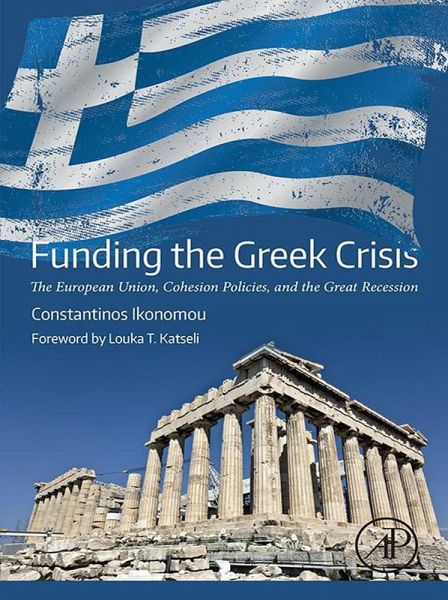
Funding the Greek Crisis (eBook, ePUB)
The European Union, Cohesion Policies, and the Great Recession
Versandkostenfrei!
Sofort per Download lieferbar
63,95 €
inkl. MwSt.
Weitere Ausgaben:

PAYBACK Punkte
32 °P sammeln!
How does one distinguish between European Union investments that improve welfare and those that create economic malaise? Funding the Greek Crisis: The European Union, Cohesion Policies, and the Great Recession explores the sources of the Greek Crisis that lie primarily in EU policies that appeared to have worked better for other countries but not for Greece. Without overly simplifying the Greek condition, it provides insights into policies the countries of the euro area may need to implement in order to ensure collective cohesion and individual success. Arguing that EU preferences for autonomo...
How does one distinguish between European Union investments that improve welfare and those that create economic malaise? Funding the Greek Crisis: The European Union, Cohesion Policies, and the Great Recession explores the sources of the Greek Crisis that lie primarily in EU policies that appeared to have worked better for other countries but not for Greece. Without overly simplifying the Greek condition, it provides insights into policies the countries of the euro area may need to implement in order to ensure collective cohesion and individual success. Arguing that EU preferences for autonomous investments discouraged organic development with lasting implications, Funding the Greek Crisis sheds new light on the nature of regional competitiveness and public economics. - Encompasses public economics, macroeconomics, international trade, competitiveness, microeconomics and regional development studies - Sheds light on key policies that affect millions of EU citizens - Examines Solow's growth model - Provides a different way of explaining growth from real business cycle theory
Dieser Download kann aus rechtlichen Gründen nur mit Rechnungsadresse in A, B, BG, CY, CZ, D, DK, EW, E, FIN, F, GR, HR, H, IRL, I, LT, L, LR, M, NL, PL, P, R, S, SLO, SK ausgeliefert werden.













